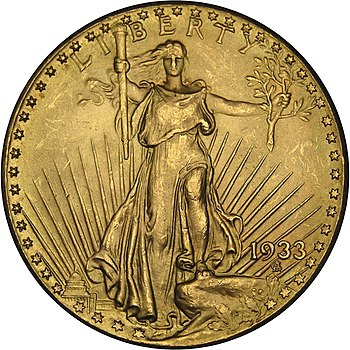Portal:Economics
Portal:Business
 Business is the practice of making one's living or making money by producing or buying and selling products (such as goods and services). It is also "any activity or enterprise entered into for profit." A business entity is not necessarily separate from the owner and the creditors can hold the owner liable for debts the business has acquired. The taxation system for businesses is different from that of the corporates. A business structure does not allow for corporate tax rates. The proprietor is personally taxed on all income from the business. A distinction is made in law and public offices between the term business and a company such as a corporation or cooperative. Colloquially, the terms are used interchangeably. (Full article...) Economics (/ˌɛkəˈnɒmɪks, ˌiːkə-/) is a social science that studies the production, distribution, and consumption of goods and services. Economics focuses on the behaviour and interactions of economic agents and how economies work. Microeconomics analyses what's viewed as basic elements in the economy, including individual agents and markets, their interactions, and the outcomes of interactions. Individual agents may include, for example, households, firms, buyers, and sellers. Macroeconomics analyses the economy as a system where production, distribution, consumption, savings, and investment expenditure interact, and factors affecting it: factors of production, such as labour, capital, land, and enterprise, inflation, economic growth, and public policies that have impact on these elements. (Full article...) The slate industry in Wales began during the Roman period when slate was used to roof the fort at Segontium, modern Caernarfon. The slate industry grew slowly until the early 18th century, from when it expanded rapidly and reached its peak output in the late 19th century, at which time the most important slate producing areas were in north-west Wales. These included the Penrhyn Quarry near Bethesda, the Dinorwig Quarry near Llanberis, the Nantlle Valley quarries and Blaenau Ffestiniog, where the slate was mined rather than quarried. Penrhyn and Dinorwig were the two largest slate quarries in the world, and the Oakeley mine at Blaenau Ffestiniog was the largest slate mine in the world. The Great Depression and the Second World War led to the closure of many smaller quarries, and competition from other roofing materials, particularly tiles, resulted in the closure of most of the larger quarries in the 1960s and 1970s. Slate production continues on a much reduced scale.
The economy of Canada is a highly developed mixed economy, with the world's tenth-largest economy , and a nominal GDP of approximately US$2.117 trillion. Canada is one of the world's largest trading nations, with a highly globalized economy. In 2021, Canadian trade in goods and services reached $2.016 trillion. Canada's exports totalled over $637 billion, while its imported goods were worth over $631 billion, of which approximately $391 billion originated from the United States. In 2018, Canada had a trade deficit in goods of $22 billion and a trade deficit in services of $25 billion. The Toronto Stock Exchange is the tenth-largest stock exchange in the world by market capitalization, listing over 1,500 companies with a combined market capitalization of over US$3 trillion. Canada has a strong cooperative banking sector, with the world's highest per-capita membership in credit unions. It ranks low in the Corruption Perceptions Index (14th in 2023) and "is widely regarded as among the least corrupt countries of the world". It ranks high in the Global Competitiveness Report (14th in 2019) and Global Innovation Indexes (15th in 2022). Canada's economy ranks above most Western nations on The Heritage Foundation's Index of Economic Freedom and experiences a relatively low level of income disparity. The country's average household disposable income per capita is "well above" the OECD average. Canada ranks among the lowest of the most developed countries for housing affordability and foreign direct investment. (Full article...) "One school of thought-influential in shaping the deregulatory policies that played a role in the current crisis-argued that the competitive equilibrium approach of microeconomics provided the correct foundations for macroeconomics. This school, based on the neoclassical model, was sometimes referred to as the "New Classical" school, or the "Chicago School," because some of its high priests taught at the University of Chicago. Because they believed that markets are always efficient, they contended that one should not be worried about economic fluctuations, such as the current recession-it was simply the efficient adjustment of the economy to shocks (such as changes in technology) coming from the outside. It was an approach that had strong policy prescriptions-a minimal role for government. Thought they based their analyses on the neoclassical (Walrasian) models, they made a further simplification that all individuals were identical. This was called the "representative agent" model. But if all individuals are identical, there can be no borrowing or lending-that would simply be moving money from the left pocket to the right pocket. There can be no bankruptcy. While I argued earlier that problems of imperfect information are central to an understanding of modern economics, in their models there can be no information asymmetries, where one person knows something that someone else doesn't. Any information asymmetry would reflect intense schizophrenia, hardly consistent with their other assumptions of full rationality. Their models have nothing to say about the critical issues that are at play in the current crisis: so what if one gives the bankers an extra trillion dollars or two? In the model, the bankers and the workers are the same people. Key policy debates were simply assumed away. For instance, the representative agent model precludes any discussion of distribution. In a sense, views of values (including the view that the distribution of income is not important) are embedded in the very formulation of their analyses."
The following are images from various business-related articles on Wikipedia.
Urgent and important articles are bold
The following Wikimedia Foundation sister projects provide more on this subject:
Discover Wikipedia using portals |






































